“People may hate you for being different and not living by society’s standards but  deep down, they wish they had the courage to do the same (Rawforbeauty.com).” Let’s be real: polyamory is not considered a social norm today. People see poly people as different, abnormal, and even sex fiends. Even though it may be an age old practice to be polygamous or even in some societies polyandrous and even though the United States experienced the free love period of the 1960’s and 70’s, polyamory is not considered a normal practice. In fact, many consider poly to be a taboo. According to mainstream America, monogamy is the norm.
deep down, they wish they had the courage to do the same (Rawforbeauty.com).” Let’s be real: polyamory is not considered a social norm today. People see poly people as different, abnormal, and even sex fiends. Even though it may be an age old practice to be polygamous or even in some societies polyandrous and even though the United States experienced the free love period of the 1960’s and 70’s, polyamory is not considered a normal practice. In fact, many consider poly to be a taboo. According to mainstream America, monogamy is the norm.
Parents teach their daughters to look for the man who loves them and only them, and we teach our boys to look for the same. Sadly, we have taught our sons not to be involved with “sluts”, “whores” or “loose women”, and our definition of these women are those who sleep around sexually with more than one person. On the other hand, it’s more acceptable in our society for males to have more than one sexual partner before marriage, but we expect them to become monogamous when considering marriage and during marriage.
How does society react to taboo subjects? We’ve seen this in the past with interracial dating/marriage and currently in the States with homosexual relationships/marriage. Taboos cause societal uproars. Of course with television shows like, “Big Love”, “Sisterwives” and “Polyamory: Married & Dating,” polyamory gets more positive exposure helping to move it away from a societal taboo, but we are far from there yet.
How will your friends, family, boss, and or church react to you being poly? 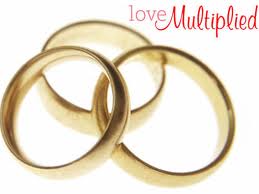 Well, that just really depends on each individual. Poly people have lost their jobs, friends and family for being poly: their churches have excommunicated them as well. Poly people have lost custody of their children just because they were poly and not because they did anything abusive or neglectful to their children.
Well, that just really depends on each individual. Poly people have lost their jobs, friends and family for being poly: their churches have excommunicated them as well. Poly people have lost custody of their children just because they were poly and not because they did anything abusive or neglectful to their children.
You may think, “Oh, no, my friends or family wouldn’t reject me!”, “My church wouldn’t exclude me!”, or “my boss wouldn’t fire me!” They can, and many do. Do not allow yourself to think even for a moment that your family, friends, church or community wouldn’t reject you. You need to prepare yourself because others could reject you. You have a lot to lose if you lose your career or job over poly. If you believe this is illegal work a place of employment to fire you, so it cannot happen. You are sadly mistaken because people have been fired for being poly. How would you feel if your parents, siblings or grandparents stopped talking to you, or even if they turned you into the authorities for your life style choice?
You must ask yourself is a poly lifestyle worth the possible loss of your job, family, and friends? Is being poly worth societal rejection? If you decide it is worth it for you, then you must proceed with caution. In the beginning, you should only tell people who you know will except you without a shadow of doubt. Personally, I never speak about my poly relationship at work, and I suggest the same for you. Many places of employment in the States have morality clauses by which they use to fire people who step outside of their morality code, and this code is usually not defined leaving it up to the people in charge to decide randomly.
 After you have told a few people who you know will support you, you can later move to informing others if you so choose. However, remember, you do not have to tell anyone. This is your private life, so it is not privy to others. Other people can hurt you with this information. We’ve all seen the statements: “I learned pretty quickly that you need to be pretty careful who you trust. If some discuss others with you, they will certainly discuss you with others.” and “Be careful who you share your weakness with. Some people can’t wait to for the opportunity to use them against you.” These are true. People will use poly against you. Be careful who you trust your private life with.
After you have told a few people who you know will support you, you can later move to informing others if you so choose. However, remember, you do not have to tell anyone. This is your private life, so it is not privy to others. Other people can hurt you with this information. We’ve all seen the statements: “I learned pretty quickly that you need to be pretty careful who you trust. If some discuss others with you, they will certainly discuss you with others.” and “Be careful who you share your weakness with. Some people can’t wait to for the opportunity to use them against you.” These are true. People will use poly against you. Be careful who you trust your private life with.
Henry Miller once said, “Whenever a taboo is broken, something good happens, something vitalizing. Taboos after all are only hangovers, the product of diseased minds, you might say, of fearsome people who hadn’t the courage to live and who under the guise of morality and religion have imposed these things upon us.” People will try to impose their belief, religion and morality on you. They will try to force you to live within their standards. Your poly lifestyle choice goes against what many believe to be right and true. Look at the negative reactions to homosexual marriage.
Do not be naive in thinking that your family, your friends, your church, your boss or your community will be different. Plan ahead. Have a plan of action. Know that any person can and will reject you for your poly choice. Only tell those you know you can absolutely trust. Never tell your place of employment unless losing your job is an acceptable choice for you. If you are one of those people who feels the need to tell everyone, then you need to know that you could face a lot of loss.
This doesn’t have to be you. We can hope that it will be different, but that doesn’t mean you can’t be prepared. Like any relationship, polyamory has pro’s and con’s. It’s important to know the good…and the bad about polyamory. Be prepared.










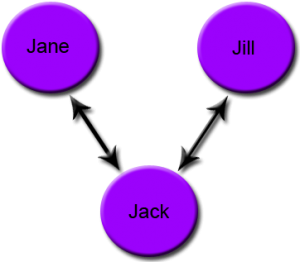
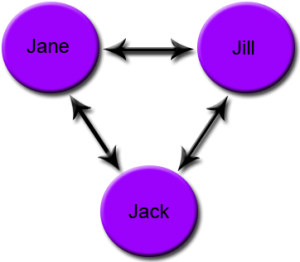
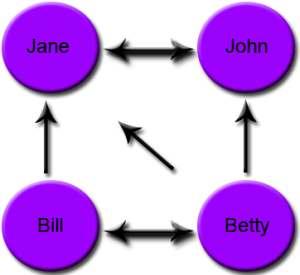
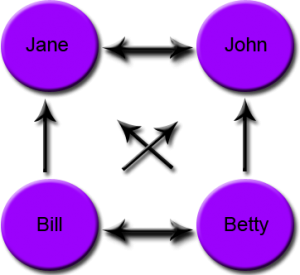
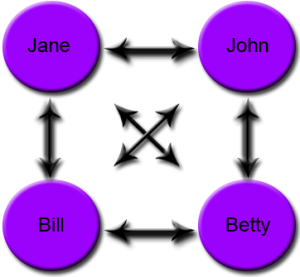

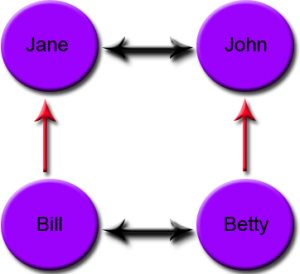
 on…things you may not have picked up in the monogamous world.
on…things you may not have picked up in the monogamous world.